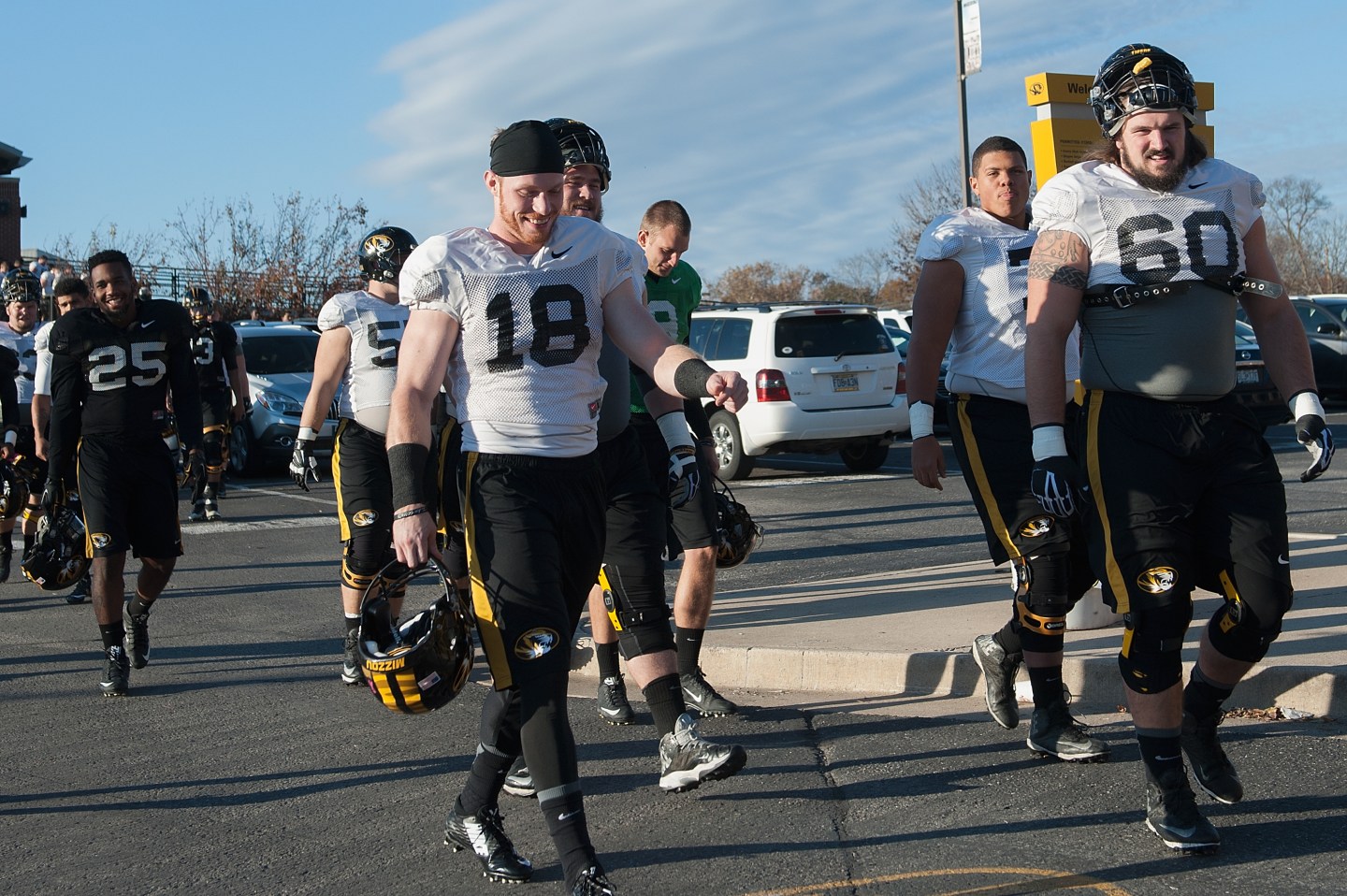When Hillary Clinton was asked about campus protests at last Saturday’s presidential debate, the Democratic frontrunner said, “I come from the ‘60s, a long time ago. There was a lot of activism on campus.”
While she might have been equivocating so she didn’t have to take a stand for or against the “Black Lives Matter” activism on campus—or might have just been overcome by nostalgia for her college years—Clinton’s remarks harkened back to an era of turmoil across the country.
Recent protests by student athletes and others may appear novel because there have been few major campus demonstrations in recent years. Students have been concentrating on getting jobs in a rocky economy, and their parents have been worried about education’s high price tag.
But four decades ago, protests were more routine. Students were galvanized by protests against the Vietnam War and against racism.
As is the case today, there were few effective ways to pressure university administrators. One of the few routes to change—then, as now—was college athletics, where players often take on outsize importance in shaping the university’s image and, increasingly, the university’s finances.
College football has become a powerhouse moneymaker for many universities, with colleges reaping huge financial rewards as passionate alumni and other fans are able to watch most games on television. When the University of Missouri stood to lose $1 million or so from a threatened strike by its football team earlier this month, the administration hastily made changes so it did not jeopardize its golden egg.
While complaints against racial incidents on campus is hardly new, the Missouri athletes’ activism was hailed by many—and roundly criticized by others—as a new student protest technique. But that ignores history: In fact, the threat of boycotts and protests harkens back to similar student athlete protests held on campuses in the 1960s.
Those protests met with mixed results.
At Syracuse University in 1969, for example, eight African-American players, sometimes called the “Syracuse Eight,” walked out of spring practice complaining of discriminatory treatment. They demanded that their coach, Ben Schwartzwalder, hire a full-time black coach. When he didn’t, the players decided to boycott.
Under order, Schwartzwalder did hire an African-American coach. But he also refused to allow seven of the players to rejoin the team the next season. And so, even though university protests against racism in 1968 and 1969 had led to the hiring of a vice president for minority group affairs and the addition of an Afro-American Studies program, the athletes’ boycott ended with the university hiring a black coach for a team that, in the 1970 season, had no black players.
The Syracuse protest is one of many examined in Integrating the Gridiron: Black Civil Rights in American Football, a book by Lane Demas, a history professor at Central Michigan University.
In the book, he singles out the importance of the 1969 protest at the University of Wyoming, when 14 of the team’s black players were kicked off the team because they wanted to wear black armbands during an upcoming game against Brigham Young University. The armbands were to protest the Mormon Church’s discrimination against black people.
That same season, 14 black players on the San Jose State team wanted to show solidarity by wearing black armbands. But the university canceled the game, citing racial unrest.
Whether it was boycotts or armbands, those players were following precedents already set in the mid-1960s. In 1967, a number of black players for the University of California football team had adopted one of those tactics—boycotting spring practice—until they won their demand that more black coaches be hired. The university complied and that same year hired John W. Erby, a star college football player and disabled Vietnam War veteran, as the first African-American coach in the Pacific Coast conference.
Other players followed suit, notably those at Michigan State in 1968, and often were able to parlay their public image and financial importance to their universities into policy changes.
It is too early to tell whether the most recent actions of the Missouri players will rekindle civil rights activism and bring about change in racial practices and policies on campus. Since the Missouri action, more campuses have seen protests against bigotry, but whether the student athletes will prevail is still unclear.












